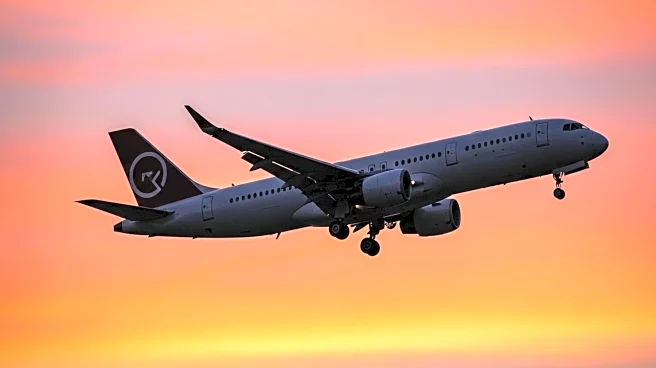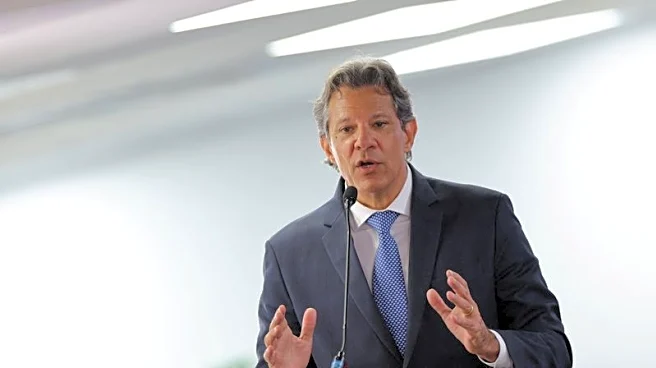What's Happening?
Ryanair has announced a significant reduction in its flight capacity in Spain, cutting one million seats during the winter of 2025. This decision comes in response to a 6.5% fee increase imposed by Aena, the state-controlled airport operator. The cuts will affect regional airports, including Santiago de Compostela, Vigo, and Tenerife North, which are vital for tourism-dependent economies. Ryanair plans to appeal the fee increase to Spain's competition authority and redirect its capacity to lower-cost markets such as Italy, Croatia, Morocco, and Sweden. The move highlights the growing influence of low-cost carriers in shaping airport operations and underscores the financial challenges faced by smaller airports, which are struggling with rising infrastructure costs and declining passenger numbers.
Why It's Important?
The reduction in Ryanair's capacity in Spain poses significant challenges for regional airports and tourism-driven economies. These airports, already facing financial strain due to increased infrastructure costs, rely heavily on seasonal visitors. The fee hike by Aena, described by Ryanair as 'blackmail,' could undermine the connectivity essential for sustaining regional economies. The situation also raises concerns about the balance of power between airlines and airport operators, with low-cost carriers exerting considerable pressure. The European Commission's ongoing consultation on airport rules may lead to reforms that could impact the competitive landscape, potentially favoring smaller airports if regulations promote cost transparency and fair access.
What's Next?
The European Commission's consultation on airport rules, open until October 28, 2025, seeks to address the relevance of current laws amid airline consolidation and environmental priorities. Key reforms under consideration include transparent charging mechanisms and updated slot allocation rules. The outcome of this review could reshape the competitive dynamics between airlines and airports. Investors and policymakers will need to balance profitability with connectivity to ensure regional economies are not adversely affected by airline retrenchments. Additionally, Ryanair's shift to lower-cost markets may boost tourism in regions like Italy, Croatia, and Morocco, presenting new opportunities for investment in sustainable tourism sectors.
Beyond the Headlines
Ryanair's strategic retrenchment in Spain reflects broader shifts in European aviation, highlighting the need for airports to adapt to changing power dynamics. The financial challenges faced by smaller airports could lead to increased calls for policy interventions, such as extending operating aid beyond 2027. The €360 billion investment required to modernize European airports by 2040 presents opportunities for infrastructure-focused investors, provided projects align with sustainability goals. As regulatory frameworks evolve, the ability to navigate these changes will be crucial for stakeholders in the aviation and tourism sectors.









